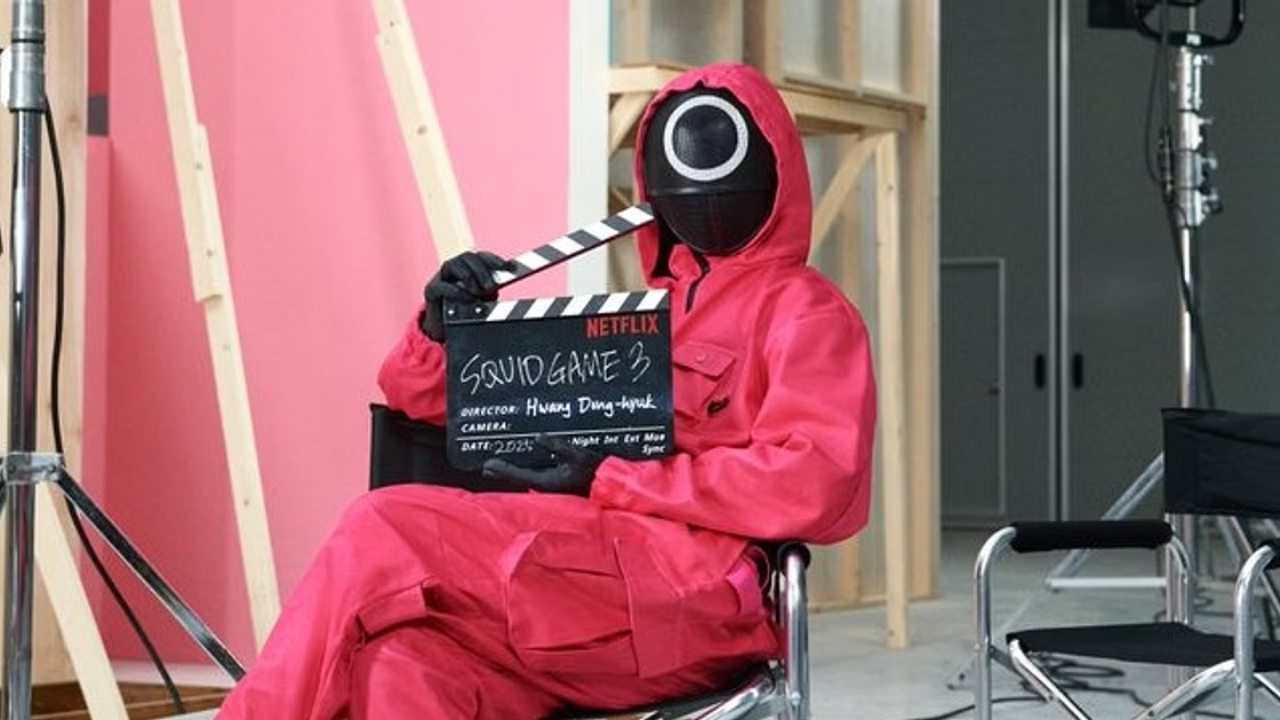
Netflix, one of the biggest streaming platforms in the world, has once again found itself in legal trouble. This time, it’s being sued by Indian filmmaker Soham Shah, who claims that the blockbuster series Squid Game copied his 2009 Bollywood movie Luck.
The South Korean show, which took the world by storm in 2021, was created by Hwang Dong-hyuk and became Netflix’s most-watched series ever.
However, the recent lawsuit alleges that the concept, plot, and several elements from Squid Game bear a striking resemblance to Shah’s film, Luck.
Shah’s claim is significant, and he seeks not just financial compensation but also legal action to stop Netflix from further benefiting from his intellectual property.
This case has sparked debates on originality in the entertainment industry, with many drawing comparisons between the two works. Let’s dive deeper into the lawsuit and its implications.
Filmmaker Soham Shah Sues Netflix, Alleging Squid Game Copied 2009 Bollywood Film “Luck”
Soham Shah, an Indian filmmaker, has filed a lawsuit against Netflix, claiming that the hit show Squid Game plagiarized his 2009 Bollywood movie Luck.
Shah alleges that the two works share uncanny similarities in their plot, characters, and themes, making it hard to believe that these parallels are purely coincidental.
Tito Jackson, Brother of Michael Jackson and Jackson 5 Member, Passes Away at 70
According to Shah, his movie Luck revolves around a group of people who are forced to participate in life-threatening challenges under the watch of an underworld kingpin, with their survival depending largely on their luck.
In contrast, Squid Game follows a group of financially desperate individuals who compete in deadly games for a massive cash prize.
Shah’s lawsuit, filed in New York, claims that Squid Game took core elements from his film and repackaged them into a South Korean dystopian narrative.
The timing of both creations is also in question, as Luck was released in 2009, while Squid Game was written in the same year.
Shah argues that Netflix, given its global reach, had access to his movie, which had been released in countries like India, the U.S., and the U.K.
His claims extend beyond just the TV show, as he believes Netflix’s further ventures into Squid Game reality series and immersive experiences also infringe on his original work.
Comparisons Between Squid Game and Luck
Shah’s lawsuit goes beyond mere accusations, as he highlights specific aspects where the two works allegedly overlap.
According to his claims, both Squid Game and Luck focus on groups of people forced into deadly games, orchestrated by powerful figures who treat the participants as pawns for their amusement.
In both narratives, the participants’ survival or failure hinges on a combination of skill, strategy, and sheer luck.

These elements, Shah argues, are central to both stories and set them apart from other survival-based genres.
The Indian director also points out the visual and thematic resemblance between the films. For instance, the portrayal of the games as high-stakes spectacles, with the fate of the contestants decided by wealthy individuals betting on their lives, is present in both Squid Game and Luck.
While survival competitions are not a new concept in cinema or TV, Shah believes that the specific way these elements were structured in his film has been mirrored in Squid Game, to the extent that it cannot be chalked up to coincidence.
Netflix’s Response: Denial of Claims and Defense Strategy
In response to the lawsuit, Netflix has categorically denied the allegations made by Shah. The streaming giant has released an official statement calling the claims “without merit.”
Netflix has defended the originality of Squid Game, stating that the series was entirely created and written by Hwang Dong-hyuk. The platform has made it clear that it intends to fight these accusations vigorously in court.
Netflix’s defense hinges on the fact that Squid Game was in development long before it was released in 2021.
Hwang Dong-hyuk has also publicly spoken about how he conceived the idea for the show during a particularly tough period in his life.
While it remains to be seen how Netflix will present its defense, the company seems ready to protect one of its most successful shows from these legal claims.
Legal Implications and Shah’s Demands
Soham Shah isn’t just seeking monetary compensation in this lawsuit. He is also demanding an injunction that would prevent Netflix from profiting further from Squid Game and any derivative works, including merchandise, reality series, or spin-offs.
Shah is particularly concerned about Netflix’s expansion of Squid Game into other formats, such as the reality competition show that aired in 2023 and a New York City immersive experience set for 2024.
Shah claims that the massive success of Squid Game has unjustly increased Netflix’s market value by over $900 million, and he believes this success was built on his intellectual property.
If the court rules in his favor, it could have significant implications for Netflix, potentially halting future productions and distribution of Squid Game-related content.
Such a decision could also open the door for other creators to challenge major platforms, which often draw inspiration from various global sources.
Engaged in Italy! Justin Theroux and Nicole Brydon Bloom Share Big News!
Conclusion
As the legal battle unfolds, it’s clear that this case could set a precedent for future copyright disputes in the entertainment industry.
With Squid Game season two set to release in late 2024, and a third season already planned, the lawsuit could have far-reaching consequences for Netflix.
While Shah is hopeful that the court will rule in his favor, Netflix remains confident in its ability to defend its intellectual property.
The case raises important questions about where inspiration ends and infringement begins, especially in a world where content is becoming more globalized.
Whether Netflix will settle or continue to fight the case in court remains to be seen, but this lawsuit has certainly brought attention to the fine line between creativity and imitation in the entertainment industry.
